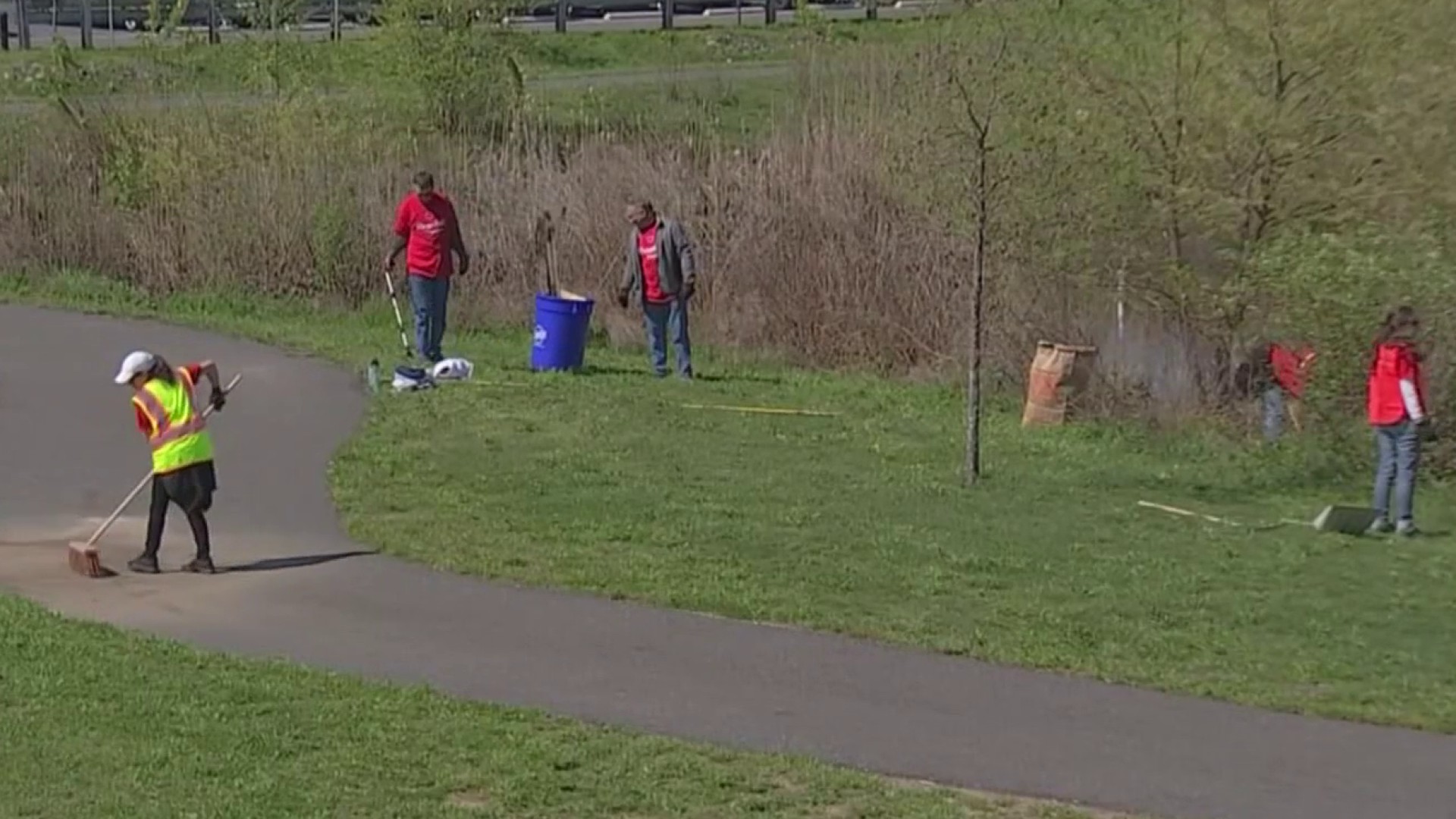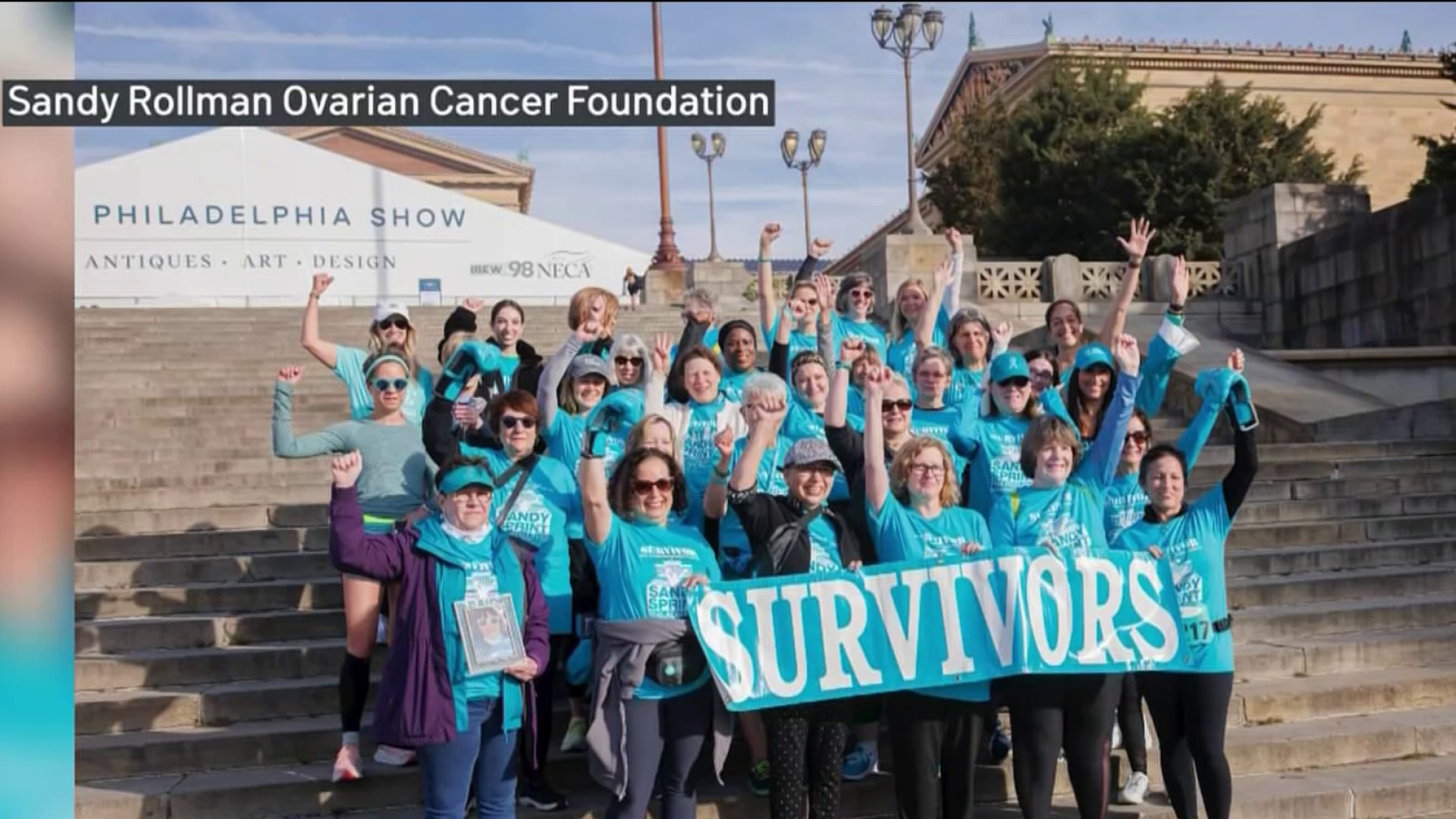Thirteen years ago on a Manheim Township soccer field, freshman Lyndsi Binford ran into a hard-kicked ball. Thrown off balance, she tumbled and her head struck the ground.
Unconscious, breathing shallowly, the 14-year-old had surgery at Lancaster General Hospital that stopped the bleeding inside her skull. It could not prevent brain damage.
The teen had to relearn such skills as walking, writing with her left hand and reading simple sentences. She spent years in special schools in New England.
Now 27, Binford is living independently, and her new goal is getting a job — no easy task.
For seven months, Binford volunteered eight hours a week at Lancaster General's cafeteria, hoping it would turn into a job. She liked meeting customers and feeling useful as she cleaned tables and wrapped food. A Medicaid-funded coach known as a community integration specialist helped her, and she was learning to do more on her own.
But at the end of March, Binford left the cafeteria after the state Department of Public Welfare cut funding that helped her volunteer and after the hospital chose not to hire her.
The setback frustrates Binford and her parents.
Local
Breaking news and the stories that matter to your neighborhood.
"I was working so hard. I put everything into it," said Binford, who volunteered nearly 1,200 hours over four years as a volunteer in different positions at the hospital.
Her parents, Robert and Lesli Binford of Manheim Township, say what happened to their daughter underscores the barriers those with traumatic brain injury encounter in trying to regain a normal life. They particularly question the hospital's commitment to reasonable workplace accommodations for job candidates who have disabilities.
In response, the hospital says it explored hiring Binford but she didn't meet its requirements.
The specialist who helped Binford learn the cafeteria tasks worked for Living Unlimited Inc. of Harrisburg. Because the state faced a federal edict to make Medicaid pay rates uniform, Living Unlimited saw its Medicaid reimbursement for community integration fall 37 percent, to $27.84 an hour. It informed the Binfords it could no longer take a loss in providing their daughter with a community integration worker.
But if Binford was hired, Living Unlimited could offer her another option, known as supported employment services. Medicaid reimbursement for supported employment is $45.25 an hour.
The Binfords asked Lancaster General to hire their daughter as a minimum-wage cafeteria worker. They asked for no more than 10 hours a week, during which she would have a job coach. The hospital declined.
Donna Kirker Morgan, a Welfare Department spokeswoman, said 15 other agencies are continuing to offer community integration services for clients in volunteer settings and the Binfords could choose one to help their daughter volunteer at the hospital.
Lesli Binford, however, is not optimistic about the other options. She said Living Unlimited was employing college graduates, while other agencies hire high-school graduates who lack training in brain injury. She said her daughter had bad experiences with poorly trained aides.
"They don't understand what it takes to redirect her," Lesli Binford said.
Morgan confirmed that agencies may hire workers who have only a high-school education, but she said the workers receive training related to a client's service plan.
Robert M. Stein, a psychologist and co-founder of Lancaster's Center for Neurobehavioral Health, is Binford's cognitive therapist, and he said the young woman has memory deficits and requires heavy repetition to learn tasks.
When Binford started volunteering in the cafeteria, Stein said, her coach had to stay by her side and remind her what to do. But through the coaching, Binford got better at doing the work.
The coach "had to do setup for Lyndsi, but once she did, she could watch things unfold," Stein said. "It made me believe Lyndsi was on her way to becoming independent at this. It was in the middle of this that we got these cuts. It was disappointing because she was making substantial progress."
Binford started volunteering at the hospital in May 2009. Slender and fair-haired, Binford at first pushed a candy and magazine cart. The hospital then created the volunteer cafeteria position for her as a step to possible employment, Stein said.
"It was Lyndsi's desire to have a paid job a few hours per week," Stein said. "She sees her sister and her brother working. She sees people starting families. She has no identity. For her, work provides an identity."
"There's things she will always struggle with," Stein said, such as reading and using a computer. "Her fine motor skills are poor."
But Binford was having enough success in the cafeteria that Stein thought within another year she could be working independently, just as she has learned to live on her own, about 2.5 miles from her parents' home.
Hospital spokesman John Lines said that after the family asked Lancaster General to hire Binford, the human resources department reviewed open entry-level positions and decided she didn't meet the requirements.
"There are differences between serving as a volunteer and working as an employee," Lines said. "We would welcome Lyndsi's return to volunteering, and we're extremely hopeful that she finds employment."
Lines said Lancaster General is a partner in three programs that give students with disabilities job training at the hospital. Through one of the programs, the hospital has hired 11 of 40 students trained, he said.
Since losing the position at Lancaster General, Binford has been on a job search that has led to only one interview.
She fills her days listening to music, watching TV, visiting friends, going to a gym and riding horses at a therapeutic stable. But what she wants is a job, a paycheck and a chance to prove herself.
"It's not easy," she said of having to relearn elementary skills and fight for acceptance in the community, "but I try my hardest to be the best I can be."
Original story here: http://bit.ly/16FIWEM



